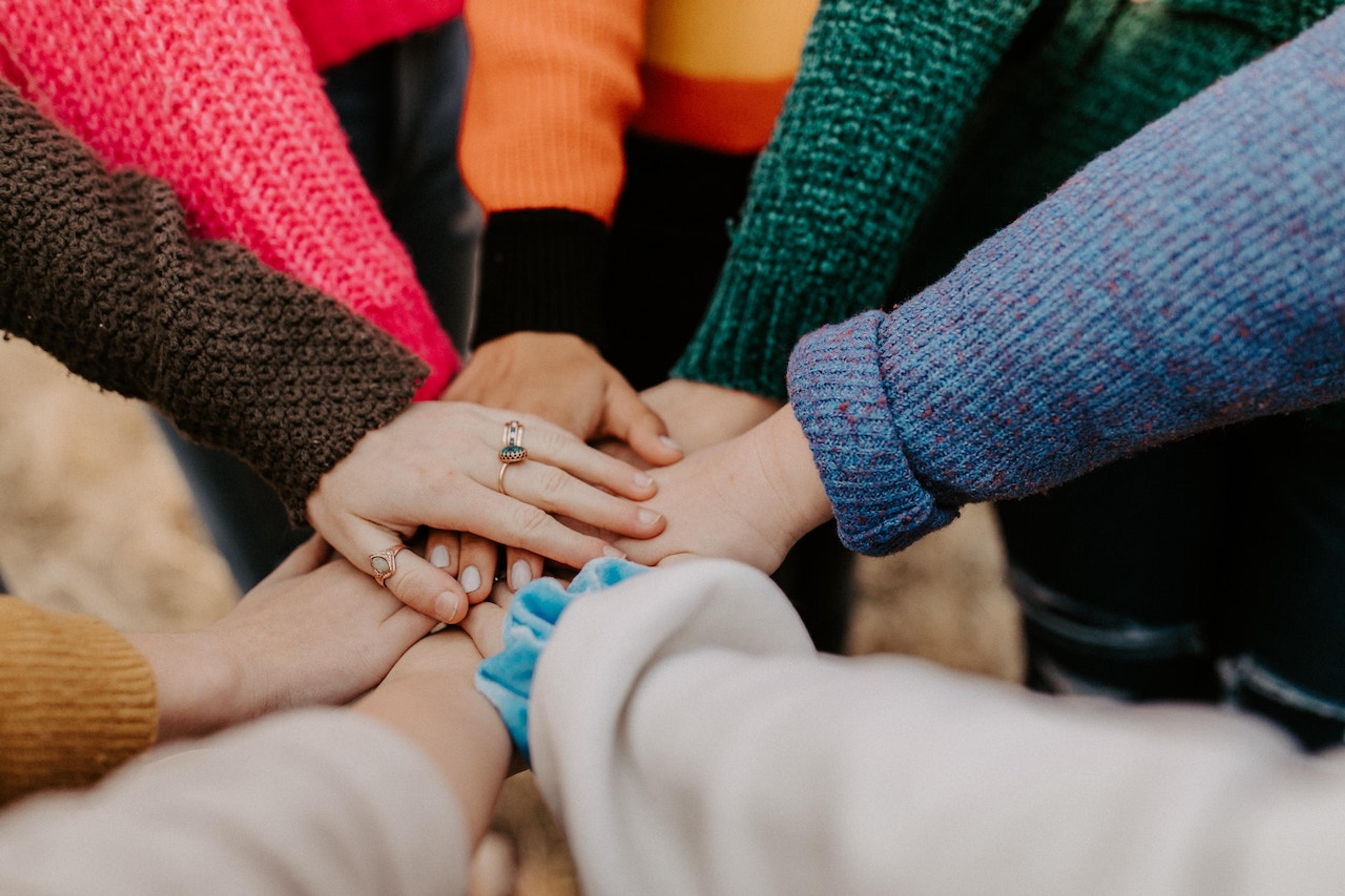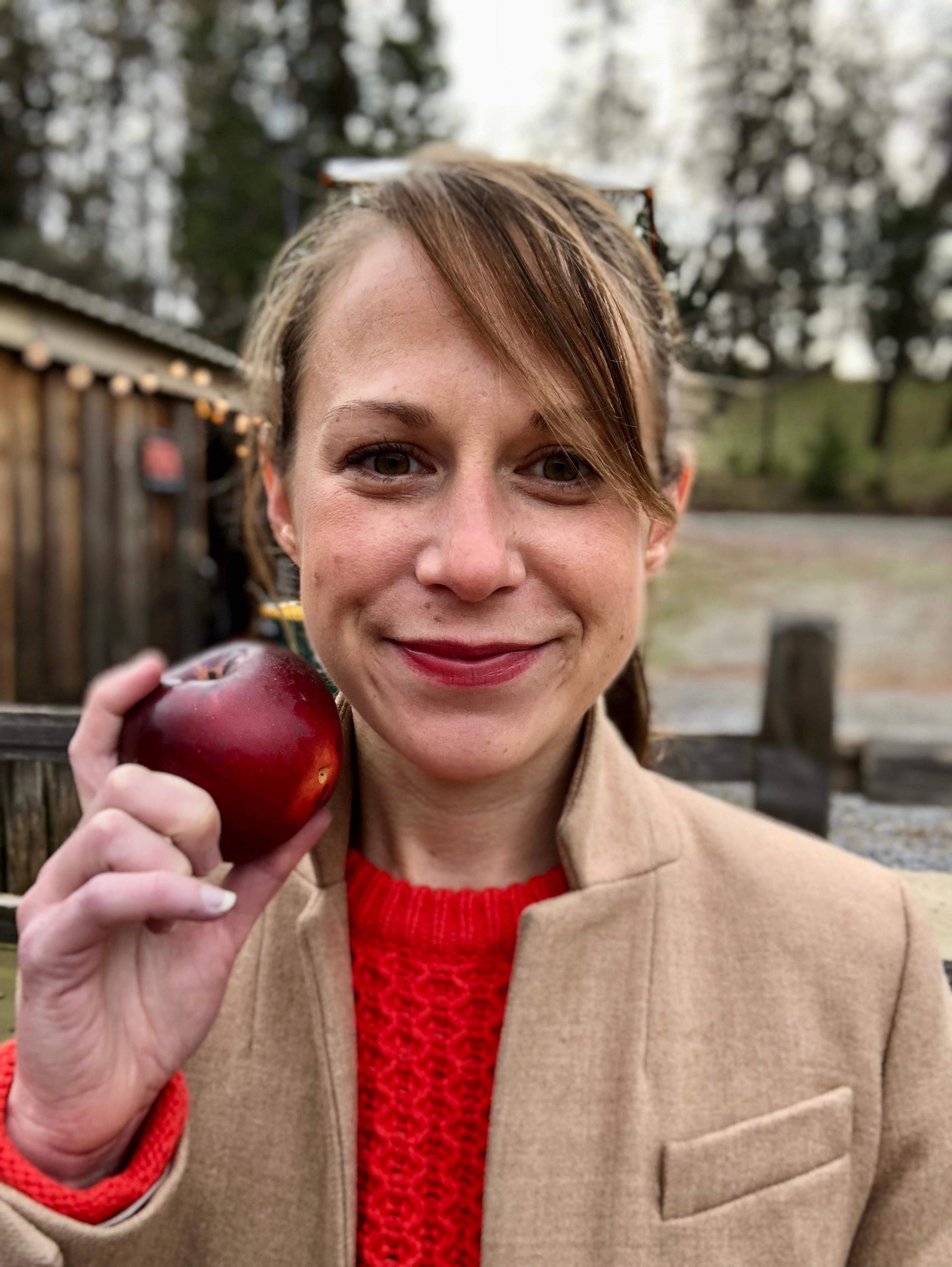
Eating disorders thrive in secrecy and hijack a person’s ability to make healthy and safe choices for themselves. That means that overcoming one of these illnesses requires the support of other people whose minds are free from eating disorder thoughts. That support often comes in the form of expert clinicians, family, friends, and mentors—but another crucial component are eating disorder support groups.
Why support groups matter
As the name suggests, an eating disorder support group is a group of people who meet to support one another through eating disorder recovery, and they’re generally a supplement to—not a substitute for—eating disorder treatment. While there are many different types and formats of eating disorder support groups, the goal of each is the same: to provide community and peer support to people doing the hard work of beating an eating disorder.
Support groups can make a huge difference on a person’s recovery journey. Connecting with others who are navigating similar experiences often has a palpable and invaluable impact on people struggling, helping them to recognize that they’re not alone, and that healing is possible.
What are the benefits of eating disorder support groups?
The benefits of support groups in eating disorder recovery have long been discussed and shared with patients in all forms of eating disorder programs. More recently, studies have backed up these benefits through research. Let’s take a look at some of the core advantages of incorporating groups into the recovery process.
Reducing isolation and stigma
Support groups allow people to feel less alone by connecting with others who truly get it. And because eating disorders are often so rooted in shame, hearing people share stories that mirror your own can be truly revelatory. A 2020 study affirmed this power, showing that support groups significantly helped to reduce stigma and isolation among adults in eating disorder treatment.
Enhancing motivation and engagement
Support groups provide camaraderie and connection, show patients and families real-life proof that recovery is possible, and provide a safe space to talk through struggles. These benefits help motivate patients to commit to the recovery process and engage in their treatment program: that same 2020 study also found that support groups measurably boosted motivation and engagement.
Equip’s Director of Lived Experience, JD Ouellette, adds another often overlooked way that support groups can boost engagement: “There’s almost always laughter, and laughter is so healing,” Ouellette says. “Painful situations are also often absurd, and being able to have some levity around them can be vital.”
Providing practical skills and strategies
Eating disorder recovery often requires learning skills to cope with tough emotions, triggering situations, or difficult relationships. Support groups offer an opportunity to learn skills and hear about how they worked for real people in real life, which can be more impactful than learning skills and strategies in an abstract way in a therapy session. Implementing these skills into recovery can have a direct impact on how a patient manages and reduces their eating disorder symptoms. One study found that support groups helped reduce post-meal distress in young people with anorexia, and another showed that support groups can reduce and prevent disordered eating in middle school students.
Supporting families and loved ones
Research shows that support groups can be hugely helpful for those supporting a loved one through recovery, with groups improving parents’ relationship with their child and providing an opportunity to connect with others who understand their experience.
Ouellette experienced this benefit firsthand when she was helping her daughter recover from anorexia. “For both me and my daughter, groups helped normalize the experiences we were having,” she says. “It matters to hear that others are sharing your experience. And because most groups contain folks in different places, those further along the road to recovery provide hope, showing that recovery is possible.”
How to choose the right eating disorder support group
While all eating disorder support groups share certain qualities and provide certain benefits, there are vast differences from group to group, and choosing the right one is important. Here are some important factors to consider when deciding among different eating disorder support groups:
Moderation and facilitation
We highly recommend attending a group that is moderated by a trained facilitator who can ensure that the group remains a constructive, supportive space. “The number one factor is having facilitators who are up-to-date in their eating disorder knowledge and aware of evidence-based practices,” says Ouellette. “This is particularly important with patient groups, to ensure that the group doesn’t devolve into a space that encourages disorder habits.”
Scheduling and frequency
We believe that support should fit into people’s lives, not the other way around—this allows you to remain connected to the things that matter most, building up a full life outside the eating disorder. For this reason, it’s important to find groups offered at times that don’t disrupt the important commitments in your life. You’ll also want to consider how frequently a group meets: if you want a lot of extra support, you might choose a group that meets twice a week rather than one that meets twice a month.
Specificity and population fit
General eating disorder support groups can be tremendously helpful, but sometimes it can be more beneficial to connect with people whose situation is even closer to yours. That might mean joining a group for a specific diagnosis (like an ARFID-specific group, for instance), a certain population (BIPOC, LGBTQIA+, etc.), or a certain age range. There are also specialized groups for loved ones supporting someone through an eating disorder, like support groups for single parents.
Participation and comfort level
Some support groups require that members participate, while others let you speak or not speak depending on how you feel. Consider what format you’d be most comfortable with and what would be most helpful for you.
Alignment with your needs
Each eating disorder support group has its own goals and structure: some might be around building skills, others might be around sharing stories, others might be an open check-in discussion. “You want to see if the group’s purpose aligns with what you’re looking for. Is it just support? Do you want skills-building? For adults, it might be a harm-reduction focus,” says Ouellette. “I would recommend visiting a few groups to get an idea of what’s going to suit you best, vibe-wise.”
A good indicator is noticing how you feel after attending a group: if you feel better than you did before the group, there’s a good chance that group will be a helpful resource on the road to recovery.

6 eating disorder support groups you can join today
There are a lot of eating disorder support groups to choose among. To help you make your choice, we’ve pulled together a list of seven places where you can find high-quality support groups that are open to the public (many support groups are only offered to patients in a specific treatment program):
1. National Alliance for Eating Disorders
The Alliance offers various free, weekly disorder support groups, both online and in-person, which are led by licensed clinicians (psychologists, therapists, dietitians, etc.) All facilitators are experienced in the field of eating disorders and attend robust training and monthly supervision with The Alliance’s clinical director. They offer groups for those in recovery, groups for those supporting people in recovery, and LGBTQIA+ groups.
2. National Association of Anorexia Nervosa and Associated Disorders (ANAD)
As the largest peer support resource for eating disorders in the country, ANAD offers free, virtual support groups for both people in recovery and those supporting someone in recovery. Each group is facilitated by a licensed clinician—such as a psychologist, therapist, or dietitian—and are 75 minutes long.
3. The Eating Disorder Foundation (EDF)
EDF offers a variety of highly specialized support groups every day of the week, allowing you to find a group of people in situations very similar to your own (for example, groups for those over 30, groups for men, art journaling groups, adolescent groups, etc.). Each group is facilitated by a licensed professional on the EDF team and is typically an hour long.
4. F.E.A.S.T.
While F.E.A.S.T. doesn’t offer a live support group, they do have an online support forum for parents and family members supporting a loved one through eating disorder recovery. Each forum is moderated by experienced parent-caregivers who are trained to guide you on how to best use the forum and find resources to support your loved one. F.E.A.S.T. also offers webinars regularly that teach important skills and education, especially for caregivers.
5. Multi-service Eating Disorders Association (MEDA)
MEDA offers a variety of online eating disorder support groups for patients and their loved ones. Groups cover a wide range off different topics, from trauma to body image to more general groups on eating disorder recovery. MEDA’s support groups are led by licensed therapists and are structured as 8-12 week cycles. Because they’re entirely virtual, these groups are a great way to get the benefits of group therapy from wherever you are.
6. Equip
We offer a variety of different, population-specific support groups for our patients and their families, including groups for athletes, boys and men, BIPOC, LGBTQIA+ folk, Spanish-speaking patients, and more, as well as groups on specific topics, like body image or DBT skills. For those not enrolled in Equip treatment, we recommend you sign up for our newsletter to learn more about free support group opportunities. You can also join our free pre-admissions support group, open to the public, to learn more about Equip treatment and ask questions.
The importance of finding community
Eating disorder support groups can be a crucial part of treatment—just one session might give you the glimmer of hope you need to push through a tough day, or a new skill that helps you finally overcome a persistent problem, or a kind word that lets you feel seen. Whether you have an eating disorder yourself or are helping someone who does, you’re not alone, and having people who remind you of that can be key to the recovery journey. Here’s a summary of the groups we highlighted in this article so you can take the next step towards finding your community:
- National Alliance for Eating Disorders
- National Association of Anorexia Nervosa and Associated Disorders (ANAD)
- The Eating Disorder Foundation (EDF)
- F.E.A.S.T.
- Multi-service Eating Disorders Association (MEDA)
- Equip

FAQs
- What are eating disorder support groups?
- An eating disorder support group is a group of people who meet regularly to support one another through eating disorder recovery. They’re generally a supplement to—and not a substitute for—eating disorder treatment. Support groups help combat the isolation patients and loved ones frequently feel during the often difficult process of eating disorder recovery.
- How do support groups help with eating disorder recovery?
- Support groups have several potential benefits: they help reduce stigma and isolation among patients, teach new skills and encourage resource-sharing, increase a patient’s motivation, and provide a dedicated space for family and friends to get support.
- What should I look for in a good support group?
- Some key factors to keep in mind when looking for a support group are the credentials of the moderator/facilitator; how the group fits into your schedule; if you want a group for a specific diagnosis, age group, or other identity; and how it fits with your needs and goals. All support groups are slightly different, so it’s important to find one that resonates with you and keeps you coming back!
- Can family members join support groups?
- Yes, there are many support groups out there for family members of eating disorder patients. Typically these are separate groups dedicated exclusively to the experience of a loved one, and family members don’t accompany their loved ones to support groups that are intended for patients. Some organizations that offer support groups for family members include National Alliance for Eating Disorders, National Association of Anorexia Nervosa and Associated Disorders (ANAD), and The Eating Disorder Foundation (EDF).
- How can I find a support group that fits my schedule?
- Luckily there are a plethora of virtual support groups, which makes it easy to fit sessions into your schedule from wherever you are. The best way to find a support group that fits your calendar is to consider the various different options and pick out a couple that might work. Give each a trial run to see which one is the most convenient and best meets your needs.
- Waller, A et al (2020). The experience of adults recovering from an eating disorder in professionally-led support groups. Qualitative Research Journal. ahead-of-print. 10.1108/QRJ-07-2020-0088.
- Monaghan, Margaret, and Louise Doyle. “'It stopped you thinking about food' - The experiences of mealtimes and attending a post-meal support group for young people with anorexia nervosa.” International journal of mental health nursing vol. 32,1 (2023): 128-138. doi:10.1111/inm.13068
- Grennan, L., et al. “I’m not alone”: a qualitative report of experiences among parents of children with eating disorders attending virtual parent-led peer support groups. J Eat Disord 10, 195 (2022). https://doi.org/10.1186/s40337-022-00719-2
- McVey, Gail L et al. “School-based peer support groups: a new approach to the prevention of disordered eating.” Eating disorders vol. 11,3 (2003): 169-85. doi:10.1080/10640260390218297








